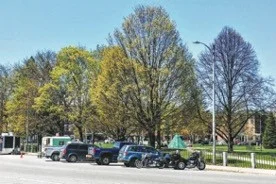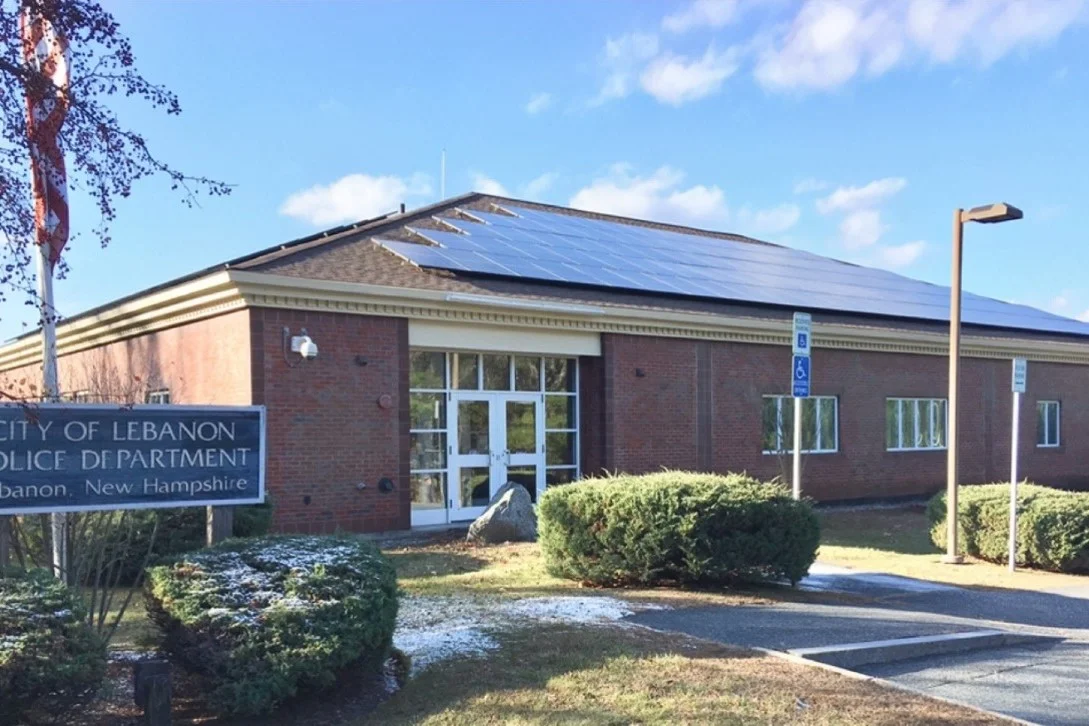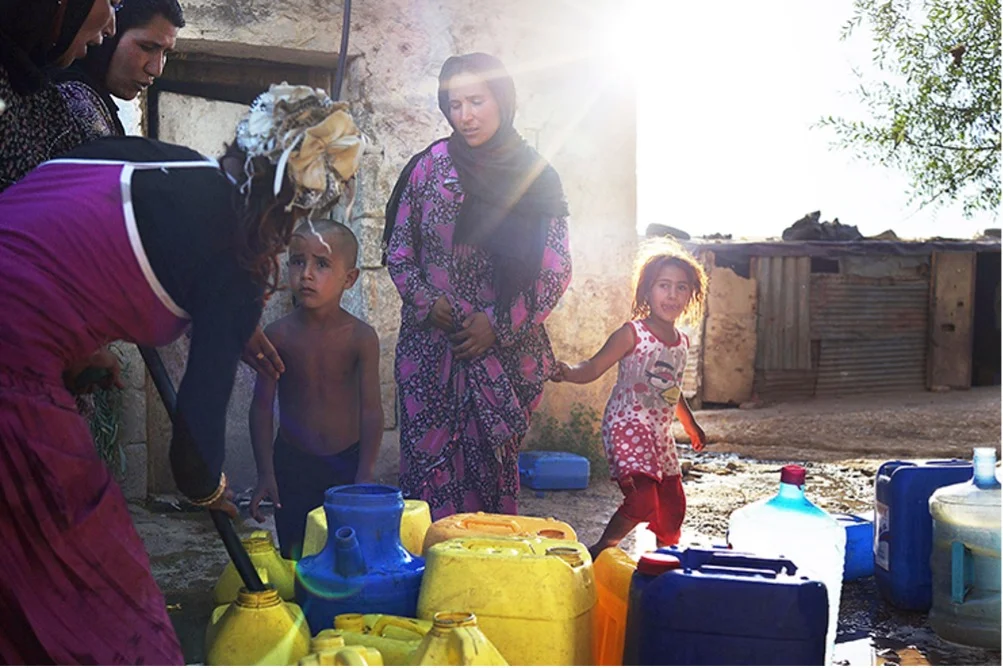Lebanon’s Principles for Sustainability | Lebanon, NH

Sustainable: Meeting the needs of the present without compromising the ability of future generations to meet their needs.
Lebanon’s Principles for Sustainability:
Principle #1 – Community Access and Engagement
Good government requires that we welcome the public’s participation and honor the public trust. Cornerstones of public trust include effective outreach, communication, accountability, and transparency. Encouraging broad, inclusive collaboration in local government decisions recognizes that all levels of government, together with the non-profit and private sectors, have a stake in creating and implementing mutually beneficial policies. Improving public access to information and processes can make City government more accountable, transparent, fair, and responsive to community needs. At the same time, because state and federal government decisions affect our community, we can effectively advocate our interests by advancing our participation at those levels.
Principle #2 – Sense of Place
The traditional character of Lebanon and Northern New England anchors our community identity, civic pride, and quality of life. Preserving the character of existing neighborhoods, and promoting harmonious character in new neighborhoods, helps keep our community unique. Revitalizing and supporting our two downtowns, Lebanon and West Lebanon, helps maintain key focal points for community activity. Preserving the rural landscape supports farm- and forest-based activity, contiguous tracts of open space for people and wildlife, and highly valued scenic assets.
Principle #3 – Environmental Responsibility and Energy Efficiency
A healthy natural environment in turn sustains human physical, mental, and fiscal health. Scientific data and practical experience confirm the value of identifying, avoiding, minimizing, and repairing environmental harm. We benefit from clean air, abundant drinking water, productive soils, and diverse ecosystems. Protecting and strengthening our community’s natural resources—including the ability to raise food and timber— enhances our economy and capacity to withstand floods, drought, and other potential disasters. Conserving “green infrastructure”—a network of open space, waterways, and other natural areas—is vital to this effort. Partnering with citizens, landowners, schools, businesses, organizations, and other governments, we can responsibly enjoy natural assets now and for many years to come. City government can lead by example in following or exceeding best management practices for all operations. For example, energy efficiency is critical to environmental health and community prosperity. Everyone can help promote energy conservation and more sustainable technology.
Principle #4 – Intelligent, Coordinated Development and Transportation
Sprawling development detracts from many of the principles outlined here and should be discouraged if we are to secure those assets that make our community desirable. Coordinating infill development, adaptive reuse of existing buildings, and conservation design for new development will maintain traditional compact settlement patterns and efficiently use existing infrastructure. Developing attractive human-scale, mixed-use, walkable/bikable neighborhoods will help conserve and enhance quality of life—especially with an integrated multi-modal transportation system to promote alternatives to the automobile. Benefits include less traffic congestion, less air pollution, less wear and tear on roads, and safer access for people of all ages and abilities. Managing an orderly pace of development will minimize negative effects on City finances from associated needs for increased facilities and services as our community grows.
Principle #5 – Economic Vitality
The continued vitality of our local businesses depends upon proactively positioning our community for a changing world. The City must foster a green, innovative and diversified business environment as it supports a healthy climate for existing enterprises. Local companies have shown that they can compete and succeed in a global economy. Identifying sustainable industry niches that we can fill and successfully compete within, and attracting sustainable businesses within those niches, will strengthen overall quality of life. For example, encouraging local markets and community-supported agriculture can revitalize the rural economy. Providing a range of affordable housing options and incubating high-tech, medical, recreational, and creative businesses can help strengthen our job base, especially by promoting training for a skilled, diverse, productive workforce earning good wages. In partnership with the private sector, the City should support educational, cultural, and entrepreneurial opportunities that attract young people. Moreover, economic vitality depends upon the ability to attract, develop, and retain a capable, creative, and highly motivated workforce. All of these activities will encourage further community investment, reduce poverty, and promote prosperity.
Principle #6 – Fiscal Responsibility
Municipal finances must be managed such that current and future generations of residents can afford to live here. The alternative would erode the traditional socioeconomic diversity that has distinguished our community from some of our neighbors. City budgets must judiciously assess and prioritize current demands and outcomes, keeping debt low while making selective investments such as energy efficiency to meet future needs, while not diminishing core services such as public works and public safety. Careful attention to land use and tax policy, such as promoting redevelopment in order to increase asset valuations, can raise new revenues without incurring new costs for municipal services. Incentives for sensible frugality can yield further savings. Above all, fiscal responsibility depends on continuing to improve transparency and public understanding of municipal budgetary matters by linking spending to outcomes.
Principle #7 – Regional Partnerships
Lebanon has become the hub of the Upper Valley. Our community, as well as the region, can benefit by actively engaging with neighboring towns to achieve common goals and address common challenges and opportunities more effectively. To the benefit of Lebanon, financial and operational efficiencies may result from economies of scale. Encouraging a regional view of community interdependence while respecting local autonomy can enable the community to manage growth locally and collaborate regionally. We should promote positive innovation and excellence by achieving and exceeding best management practices.
 Algeria
Algeria Bahrain
Bahrain Comoros
Comoros Djibouti
Djibouti Egypt
Egypt Iraq
Iraq Jordan
Jordan Kuwait
Kuwait Lebanon
Lebanon Libya
Libya Mauritania
Mauritania Morocco
Morocco Oman
Oman Palestine
Palestine Qatar
Qatar Saudi Arabia
Saudi Arabia Somalia
Somalia Sudan
Sudan Tunisia
Tunisia UAE
UAE Yemen
Yemen




